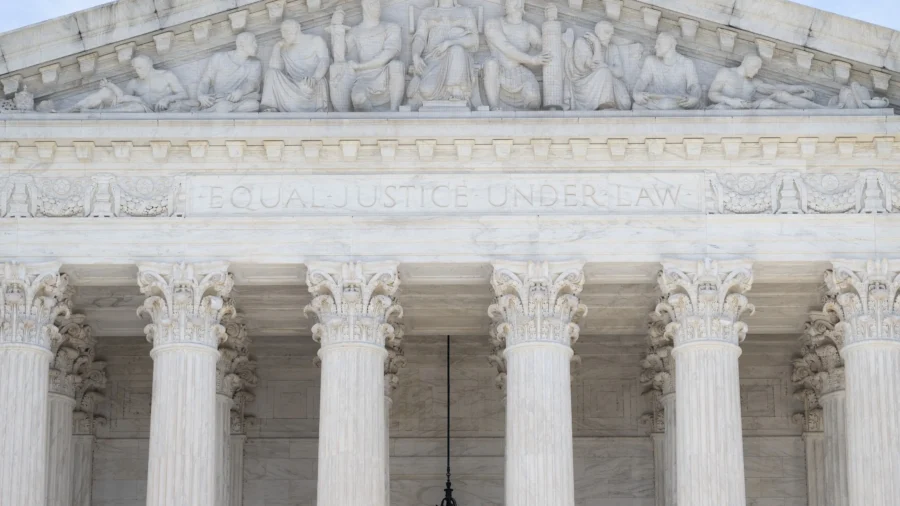The Supreme Court wrestled with the National Rifle Association’s (NRA) lawsuit alleging that New York attempted to coerce speech by pressuring insurance companies to cut ties with the gun advocacy group.
During the Mar. 18 oral argument, each side contested whether the state attempted to regulate speech or conduct that was illegal, and therefore fell outside of the First Amendment.
Neal Katyal, who argued for former New York Department of Financial Services (DFS) Superintendent Maria Vullo, said the state targeted the NRA based on illegal insurance products and therefore was justified in telling companies to cease its work with those.
“Ms. Vullo’s position throughout has been there’s not one illegal insurance product, it’s all illegal,” Mr. Katyal said.
He also noted a lower court’s ruling that Ms. Vullo had qualified immunity.
The NRA didn’t assert a strong enough First Amendment claim to overcome that immunity.
The U.S. Court of Appeals for the Second Circuit had rejected the NRA’s First Amendment arguments and said that regardless, Ms. Vullo was entitled to qualified immunity.
David Cole, who argued for the NRA, maintained that New York engaged in a type of coercive activity that violated the First Amendment.
“This was not about enforcing insurance law or mere government speech,” Mr. Cole said. “It was a campaign by the state’s highest political officials to use their power to coerce a boycott of a political advocacy organization because they disagreed with its advocacy.”
The U.S. solicitor general’s office similarly argued that Ms. Vullo’s conduct, as well as former New York Gov. Andrew Cuomo’s communications, showed the state was engaging in coercion prohibited under the First Amendment.
It was difficult to determine how the justices would vote, although Justice Samuel Alito’s comments indicated he supported the NRA.
He told Mr. Katyal that he was “shifting the burden to [the NRA]. This is a First Amendment case … all they need to do is to show that the desire to suppress speech was a motivating factor. They don’t have to prove that the … regulatory action would have been taken even if Ms. Vullo didn’t have this motivation.”
The case emerged out of the aftermath of the Parkland shooting on Feb. 14, 2018.
The financial services department, according to its brief to the Court, had already been investigating the NRA but issued controversial guidance after the shooting, advising companies they could face reputational risks by working with the NRA and other gun groups.
Justice Elena Kagan indicated Ms. Vullo had a responsibility to advise companies about the purported reputational risk involved with working with gun advocacy groups.
“If … reputational risk is a real thing, and if gun companies or gun advocacy groups impose that kind of reputational risk, isn’t it a bank regulator’s job to point that out?” she asked Mr. Cole.
He responded that New York was not providing “genuine advice about law enforcement.”
Instead, he said, Ms. Vullo tried to “leverage her authority to weaken the NRA because she disagreed with its political viewpoints.”
From The Epoch Times


